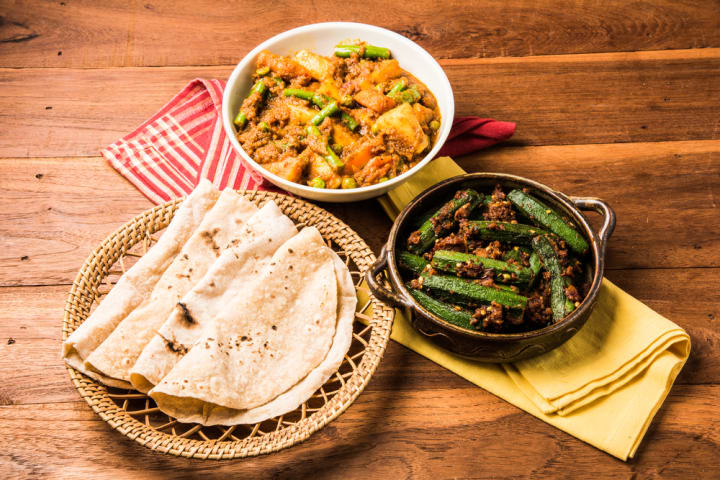The Faster Way To Fat Loss Meal Plan
Fat loss meal plan

One of the fastest ways to lose weight is to create an effective fat loss meal plan and stick to it.
Meal planning involves recording what you eat when you eat it, and how much you’re eating in relation to your goals, which will help you keep track of your calorie consumption while helping you feel fuller faster and stay satisfied throughout the day so that you don’t overeat or binge on junk food later on.

If you’re trying to lose weight fat loss meal plan, follow these steps to create an effective meal plan that will help you get where you want to be fast!
What are some common mistakes people make when following a low carb, high fat, ketogenic diet?
- Planning as Part of Planning
- When Do I Eat?
- Healthy Fats, Proteins, and Carbs
- Guidelines For Avoiding Cravings
- The Biggest Misconception About Diet Plans
- What’s Next?
👉👉 Planning as Part of Planning

To make sure your diet is as nutritious as possible, you should also make sure you’re planning.
After all, healthy eating goes beyond simply picking out what you’re going to eat for each meal — it’s about planning out your weekly meals in advance so that you know when and what you’ll be eating every day of the week.
Take Sunday afternoon, for example. Why not set aside some time to plan out your meals for Monday through Friday? Take some time on Sunday night or Monday morning and write down everything you’ll be eating over those five days — including snacks and desserts! Then go shopping at least once between Sunday evening and when you actually cook on Monday so that all of your ingredients are already in place.
You’ll want to cook most of your food fresh — but if there are certain things like protein bars, granola, dried fruit, etc., that you can purchase from bulk bins or from grocery stores with long-shelf lives (and keep in large containers), do so! Just remember: takeout isn’t part of your meal plan.
You can’t cook extra food and count it towards next week’s menu; if you’re treating yourself to something like Chinese food on Tuesday night, assume that doesn’t fit into your upcoming plans (unless it really does). If you’ve got big plans where taking home leftovers won’t work out well (Christmas dinner at Mom’s house comes to mind), prepare accordingly.
👉👉 When Do I Eat?

This is one of those questions that has a lot of right answers, but it’s also important to figure out what will work best for you.
For some people, eating first thing in the morning helps stabilize blood sugar throughout their day, which keeps them fuller longer.
For others, skipping breakfast isn’t a big deal and gives them extra time to squeeze in an early-morning workout.
Experiment with different eating schedules and see what works best for you.
Here are some other suggestions Try to eat at least four hours before your next workout (it takes 30 minutes for your body to digest food), spread meals evenly throughout your day so you’re never more than four hours away from your next meal (to avoid feeling famished) and schedule times when you don’t need to be mentally sharp — like while driving or working out — for mindless snacking.
And while there’s nothing wrong with finding comfort in food, if after several months it looks like you’re using food as a crutch, talk to someone about getting professional help.
👉👉 Healthy Fats, Proteins, and Carbs

Anytime you plan meals, it’s important to plan for three macronutrients: carbohydrates, proteins, and fats.
These are your body’s main energy sources — to keep you going through physical activity and everyday life. Carbohydrates are found in things like whole grains, fruits, vegetables and starchy legumes (peas, beans).
Proteins include lean meats, poultry and seafood as well as tofu, beans or lentils.
Healthy fats include fish oil (omega-3), walnuts or other nuts that can be added to salads or eaten on their own. It’s also good to incorporate some fibre into your meal plan.
Fibre is an indigestible carbohydrate that helps with digestion, promotes regularity and keeps us feeling full longer.
It also helps us avoid constipation — an issue many people have trouble with when following weight loss plans because they don’t eat enough fibre rich foods!
As long as we include at least one healthy protein source at each meal, our meal plans will work out perfectly! Here are some healthy meal examples from One Hundred Fitness… Be sure to check out these meal plans now — before we make them even better! Check out over 200 recipes (and growing) in our Recipe Index.
👉👉 Guidelines For Avoiding Cravings
cravings are something we have trouble resisting. This can result in all sorts of unhealthy things: eating an entire pie after work, grazing on cereal at all hours of the day, or having ice cream as your go-to late-night snack.
To reduce cravings, follow these simple steps. First, wait five minutes before you grab whatever it is you’re craving.
Doing so increases the likelihood that you’ll get over your craving by delaying gratification just a bit.
Next, eat protein with every meal; protein increases levels of hormones associated with satiety and prevents carbohydrates from making us feel hungry again shortly thereafter.
Lastly, find an exercise program that helps curb cravings. Exercise leads to hormone changes (insulin, serotonin) which help control our appetites.
👉👉 The Biggest Misconception About Diet Plans
It’s not about what you eat, it’s about when you eat. Nutrient timing is one of, if not THE most crucial aspect of any diet plan.
If your goal is weight loss then figuring out how and when to consume food throughout your day should be high on your priority list.
The truth is, simply restricting caloric intake will leave you hungry, cause cravings and ultimately lead to cheating/binging and undoing all of your hard work.
A good meal plan has at least three meals that contain both protein and carbs while two or three meals are reserved solely for lean protein sources like chicken breast or fish with veggies; fasting during low-calorie hours causes an increase in the production of growth hormone which stimulates tissue repair leading to fat loss.
Eating six times per day also keeps hunger levels stable allowing you to focus more on other important things.
Don’t allow meal time to become another thing you dread because eating every 3–4 hours helps keep blood sugar levels steady and energy levels up (not down).
Setting up a schedule allows your body to know what’s coming next which leads us to our next point: Hormone regulation!
That Time of Day You Eat Matters: The cycle begins when leptin — the main hunger hormone — is secreted by fat cells.
Leptin binds itself onto hypothalamus receptors, signalling satiety (or lack thereof) after which ghrelin is released from stomach cells (increases appetite). An adequate amount of leptin tells your brain that it’s full so there’s no need for additional food.
👉👉 What’s Next?
The key is to not get too far ahead of yourself. Stay in touch with your plan, as well as how you’re feeling each week.
If your weight loss starts to stall, it’s time for some fine-tuning. Tweak your calorie intake and activity level until you find something that works — for example, if you’ve been doing 1,500 calories a day but feel like you’ve hit a plateau (you haven’t lost any weight one week or seen much of an increase on the scale), cut back by 250 calories.
Yes, you might have to shave off more than half of what you’ve already been eating at first, but usually, those plateaus are just flukes and nothing more.
Keep tweaking and you’ll eventually find a good balance where there’s steady progress toward your goal.
It may take months — and even several attempts — to figure out how many calories works best for you, but it will be worth it when things finally come together.
And remember: Every pound that comes off takes two pounds of stress off your body! The stress reaction can make people feel up or down, Dr Smith says. That translates into fatigue.
Keep these tips in mind, especially when things start getting stressful around final exam time! (Speaking from experience here.)
About the Creator
Enjoyed the story? Support the Creator.
Subscribe for free to receive all their stories in your feed. You could also pledge your support or give them a one-off tip, letting them know you appreciate their work.






Comments
There are no comments for this story
Be the first to respond and start the conversation.